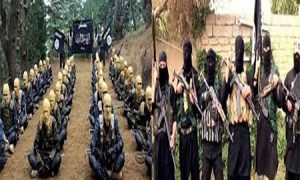Bahaismiran:
party can be considered as a group of people in society believing in some principles having common aims in the form of organization. They communicate with each other via various branches and parts and try to gain power in governments to achieve their goals.
The political parties try to influence on sensitive posts particularly the economic and military ones to use this power to achieve the government or continue it.
As a matter of fact, the political parties possess various jobs including gaining political power.
Is a creed like Baha’ism similar to a party, cult and a political organization which has tried to make its members influence on governments or to assassinate and remove the opponents to gain power as we observe it during Babism history? Is Baha’ism going to gain power and political government because it has made its member penetrate into political, military and economic posts during the second Pahlavi? What has been Baha’ism’s plan for Iran?
Recently, a book called “the military Baha’ is in the second Pahlavi government” has been published including really important information about the Baha’is influence on high-ranking military jobs during the second Pahlavi periods of time which has been revealed the sources of Baha’is themselves based on documents. In this book; based on documents, it has been indicated that 53 generals out of 550 Baha’i officers in Muhammad Reza’s government have been brigadier-generals including 2, field marshals, 13 lieutenant generals, 8 major-generals and 30 brigadier-generals while in Toudeh political party the most high-ranking officer has been colonel. In religious formal minorities, there were generals in Zoroastrian, 1 general in Christianity and there was no general in Judaism, but there have been 53 generals in Baha’ism.
The Baha’i officers working in the army were as follows: major general Shuaullah Alaee, brigadier general Ataullah Moqarrabi, brigadier- general Muhammad Sahami, brigadier-general Hedayatullah Sohrab, brigadier-general Manouchehr Ta’eedi, brigadier-general Monir Derakhshan, Colonel Hussein Vahdat Haqq, Colonel Kamal Sohrab Colonel Jalal Khaze’a, Colonel Abbas Qoli Shahgholi, Colonel Nosratullah Vahdat, Colonel Riyaz Qadimi, Colonel Enayatollah Sohrab, Colonel Naji, Colonel Ishraghiyan,…
Also, lieutenant general Abdul Karim Ayadi, the special physician of the Shah who was often with him and was the chairman of army clinic. He played a key role in the expansion of political relationships and the intelligent service one between Iran and Israel. All these influences by the Baha’ is politically is in contradiction with the Baha’i statements regarding not meddling with policy.
-Source: Fakhari, Abdul Hussein, two centuries of Challenges; Tehran, Gouy publishing house, 1397 S.H.
,






